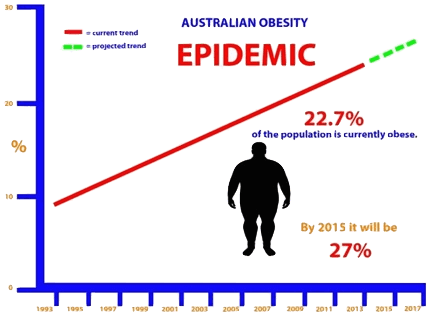A strategy has been proposed by Diabetes Australia to combat type 2 diabetes which is set to become the countries biggest health burden in the next five years.
Currently the disease costs the country 14.6 billion dollars but experts say that this will blow out to 30 billion in the next 12 years.
Professor Greg Johnson told the National Press Club that at least 1.5 million people in Australia have diabetes with 100,000 Australians developing the disease in the last 12 months. That equates to around 280 people per day.
“There is no such thing as mild diabetes” Professor Johnson said.
“All types of diabetes are serious and can lead to complications”
People that suffer with the disease are know to have a much higher rate of heart disease and strokes. They are also at risk of kidney failure, blindness and for many the amputation of toes is common. There are many other complications as diabetes destroys blood vessels which supply nutrients to every part of the body.
The strategy outlines improved ways to manage the disease, more effective ways of diagnosing people and ways to help people prevent developing the disease.
It is estimated that there are 2 million Australians with pre-diabetes who are at risk of developing the disease.
“Prevention in this population is proven and possible. That’s why Australia needs to put in place a national prevention program” said Professor Colagiuri from the University of Sydney.
Although a national plan is a important step sadly the proposed strategy stops short of addressing the main cause of type two diabetes which is the production and supply of processed, factory made foods which are a high energy low nutrition food. These foods upon ingestion deliver a high sugar load which over time leads to obesity and in many cases to the onset of type 2 diabetes.
Studies have shown that the elimination of these foods and the return to a whole foods plant based diet has been shown to arrest and even reverse the condition. They have also shown that populations who consume a plant based unprocessed food diet have a much lower rate of developing the disease.






